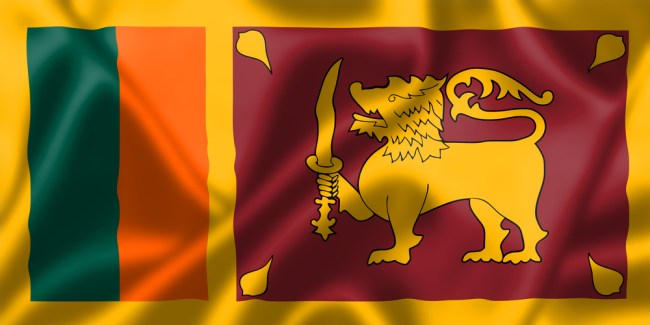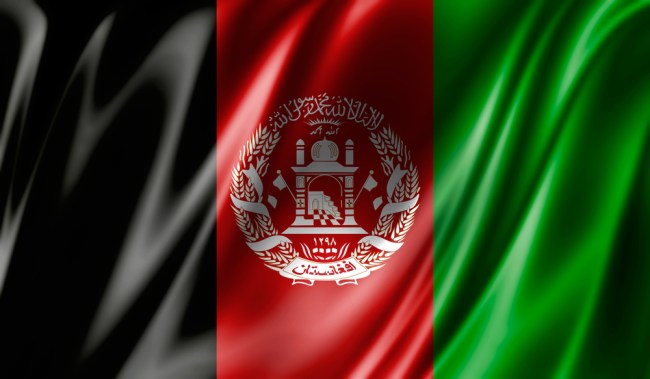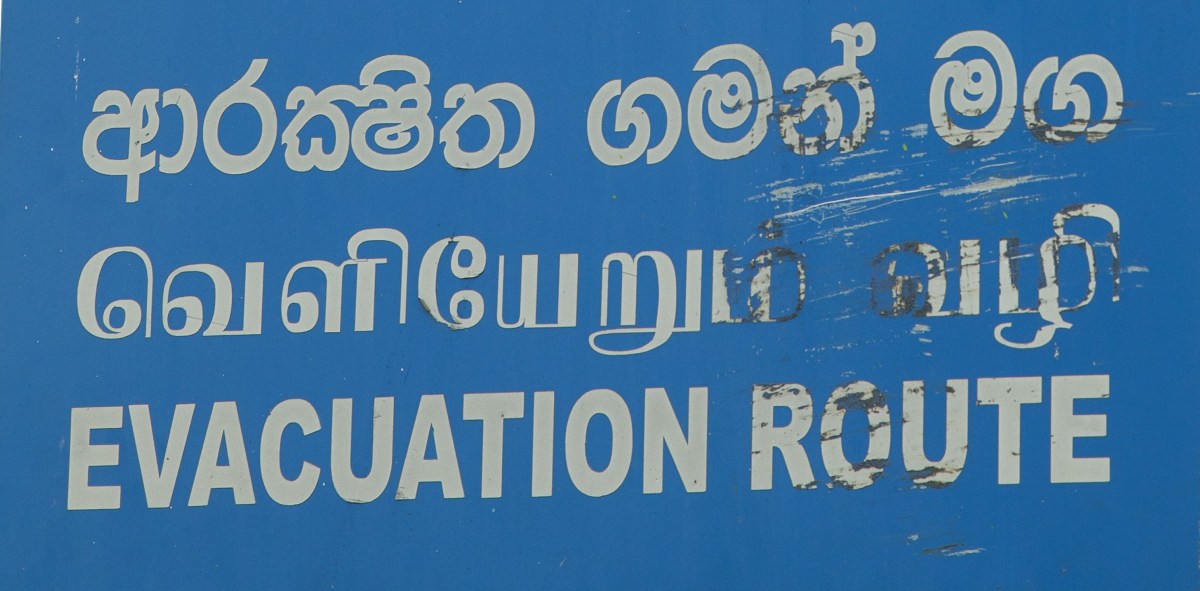Did you know there was a huge flood in Sri Lanka a few days ago that has killed over 200 people? Did you know there was a bombing in Afghanistan that killed more civilians than the Manchester attack did? It’s likely you didn’t.
It’s easy to point fingers at professional, mainstream media and criticize what they are or aren’t covering, and when they’re being racist, sexist, or xenophobic. Too much attention here, not enough attention there. But what about when media does cover certain news…and the public doesn’t bite? As social media becomes the primary source of news for many of us, what responsibility do individuals have in what and how they share?
There’s good reason to point fingers at mainstream media. The news media, especially television news (though print and online outlets certainly aren’t immune), are all about eyeballs and ratings. Too often, news is sensationalized or prioritized according to what will “sell” (or what will draw viewers, which is what matters to advertisers) rather than according to what is important, equitable, or truthful.
For example, I’ve had friends who’ve been producers for 24-hour news networks, and heard them lament that, in order to fill 24 hours they’re forced to take the most sensational angle on a story…just to fill time. They tend to focus more on international stories if Americans were somehow involved. I’ve heard stories of “casting sessions” for missing children, where they spread photos out on a table and choose which cases to report on based on the child’s looks and how “sympathetic” viewers will be, which is why we hear about so many white, blonde girls when they go missing, leading to stuff like social media amplifying the cases of missing black girls in DC to fill in the gap.
In that particular story, we lamented the fact social media had to step in to do a job that mainstream media should be doing more often. What about when the opposite is true?

For the record, here is what happened in Sri Lanka, thanks to CNN (yes, CNN – a mainstream news source. More on that later!). Worst flooding in 14 years. Over 200 people dead, 100 missing, and over 100 injured. Al Jazeera has coverage on the current relief efforts. Want to help? Consider donating to the efforts of Save the Children or the Red Cross in the country.
A friend of mine posted the following on her Facebook page yesterday, which then became the first time I heard about what had happened in Sri Lanka earlier in the week:
“So. Everyone posted about the tragedy in Manchester. And yes that was very sad. But 200 people are dead and half a million people have been displaced in Sri Lanka. Why is no one talking about this?
Anytime anything happens in the Western world, the whole world stops to talk about it and be sad about it. But when thousands die in the East, be it through natural disasters or through terrorism, no one says a word.
To everyone (including the media) who talked about Manchester, and the attacks in France when they happened, but never posted about the terror attacks in Ankara or Beruit that happened around the same time, and to all of you who posted about the floods in Louisiana last year but are now ignoring Sri Lanka – this is something all of you need to look at in yourselves. You need to be an equal opportunity mourner. Not just when white people die in Western countries.”
Cue all the comments to the post where people expressed the fact that this was the first they were hearing about this particular flood. Days after it happened.
Full disclosure: I haven’t posted anything on Manchester either. Unless I feel a particular tie to a place, like it’s somewhere I’ve been, or someplace where people I know live, I don’t post general condolence things about international tragedies like that. It’s not that I don’t care, or that my heart isn’t breaking for those who’ve lost people they love, but that I don’t feel the need to share my two cents on a tragedy that that doesn’t directly affect me. I often feel like it’s not my place, and I don’t want to be a “mourning tourist.” Let those who were affected mourn, and all that.
But perhaps it’s time to rethink that approach?

Earlier this morning in Kabul, Afghanistan, a bomb hidden in a sewage tanker went off near the German embassy in the Wazir Akbar Khan area. The Guardian reports that the blast “left at least 83 people dead and wounded more than 461, the Afghan public health ministry has said.”
Do you know what the sad thing is? The only reason why I heard about this is because I wanted to write a story about how I hadn’t heard about Sri Lanka, and so the staff here was paying extra attention to International News.
That got me thinking about how I used to cover more international news for TMS in the form of my Feminism Around the World column, where once a week I would report on stories related to the issues we cover here from other countries. Sadly, I had to let that column go. Why? Because they never got much traffic. Despite the fact that I got thank you emails from many people saying that they were thrilled that we were covering important stories outside the U.S., the numbers just weren’t there to back it up. And so, despite my desire to make international reporting more of a thing here, I could no longer devote time to a regular feature that wasn’t directly benefiting the site, which is sad, because I thought that was something more people wanted.
Meanwhile, I have yet to see anything on Afghanistan or Sri Lanka in my social media feeds (other than that one friend’s original post). You know what I am seeing? “Covfefe.” And that’s all I’m going to say about that.
With social media site algorithms spitting out posts based on what we like and share, perhaps it’s time for us to be more proactive in curating that. If we truly value diversity and intersectionality; globalism and the issues and concerns of non-white communities, perhaps we need to be more intentional about seeking those stories out and getting them into the social media rotation. We can’t complain that “mainstream media” isn’t covering certain stories, but then ignore them when they do.
With #MissingDCGirls, we saw a beautiful example of Americans coming together via social media to spread important information in order to help an otherwise neglected community. Imagine if we came together to make it more of a point to share news from all countries that have given us citizens, not just the Western or white ones. Imagine if we actually treated social media usage like activism instead of “armchair activism.” What if we sought things out and shared them with intention, rather than simply re-sharing what other people deem important.
Perhaps this is one way by which we can burst those “bubbles” we’re all apparently living in.
(image: Shutterstock)
Want more stories like this? Become a subscriber and support the site!
—The Mary Sue has a strict comment policy that forbids, but is not limited to, personal insults toward anyone, hate speech, and trolling.—









Published: May 31, 2017 05:05 pm